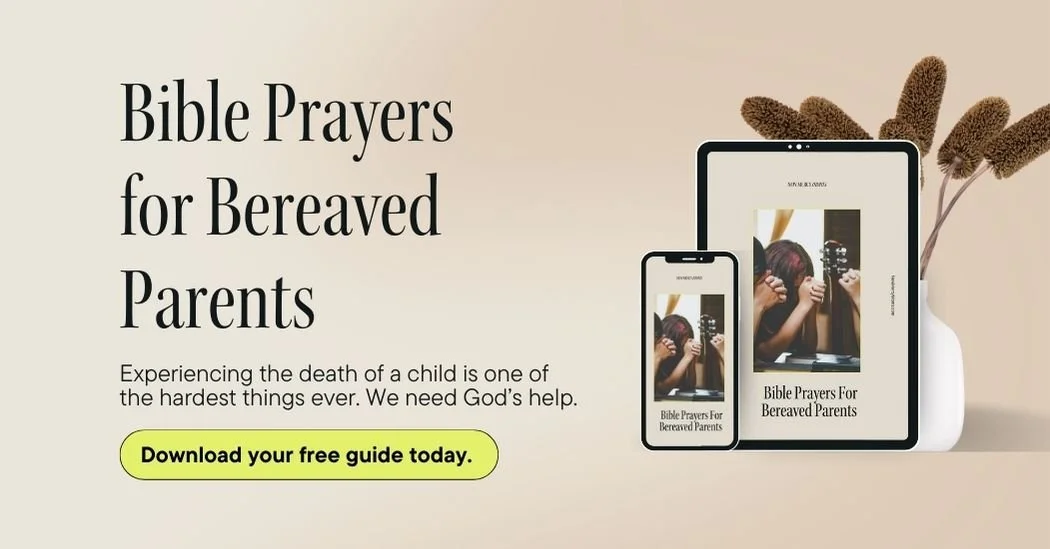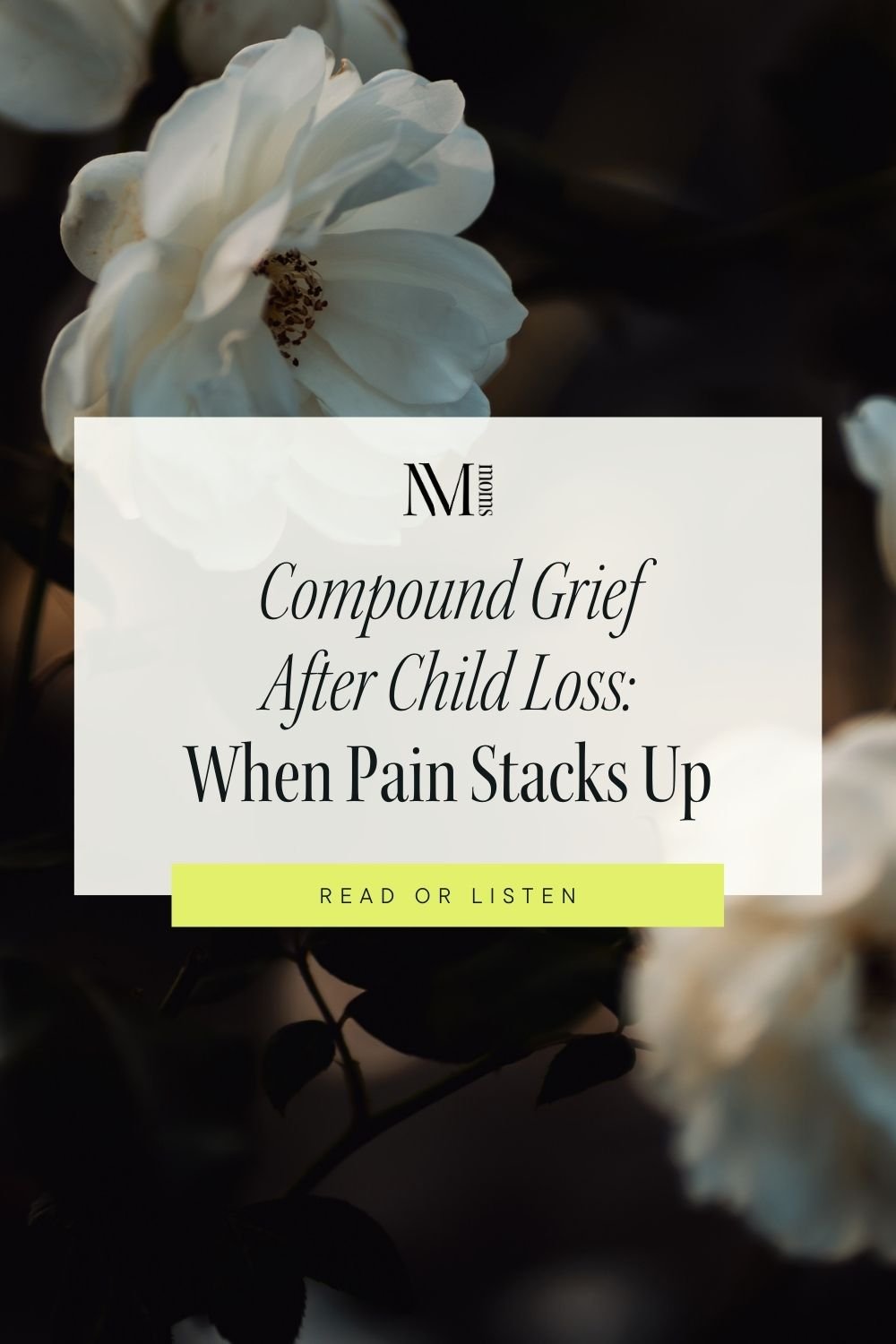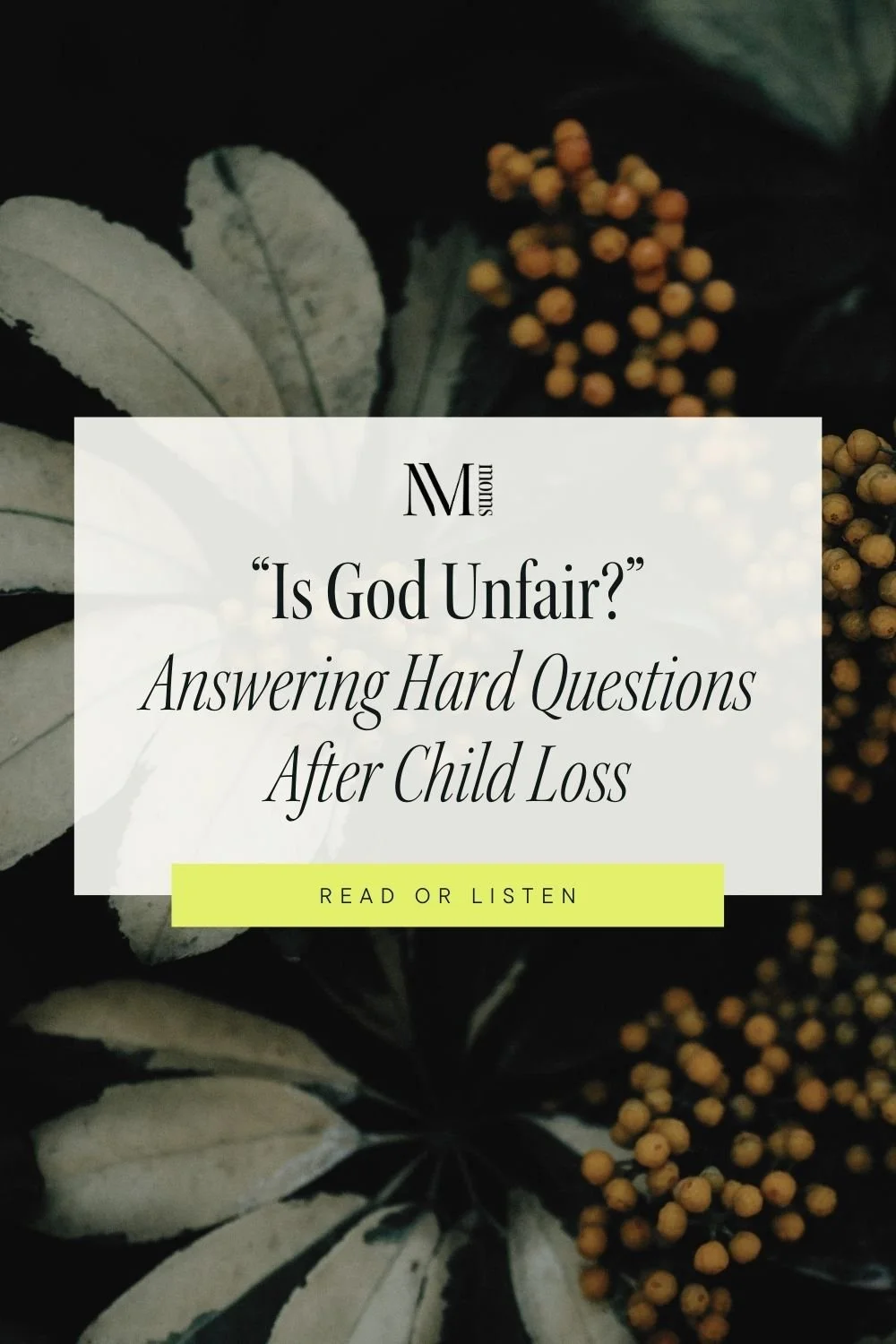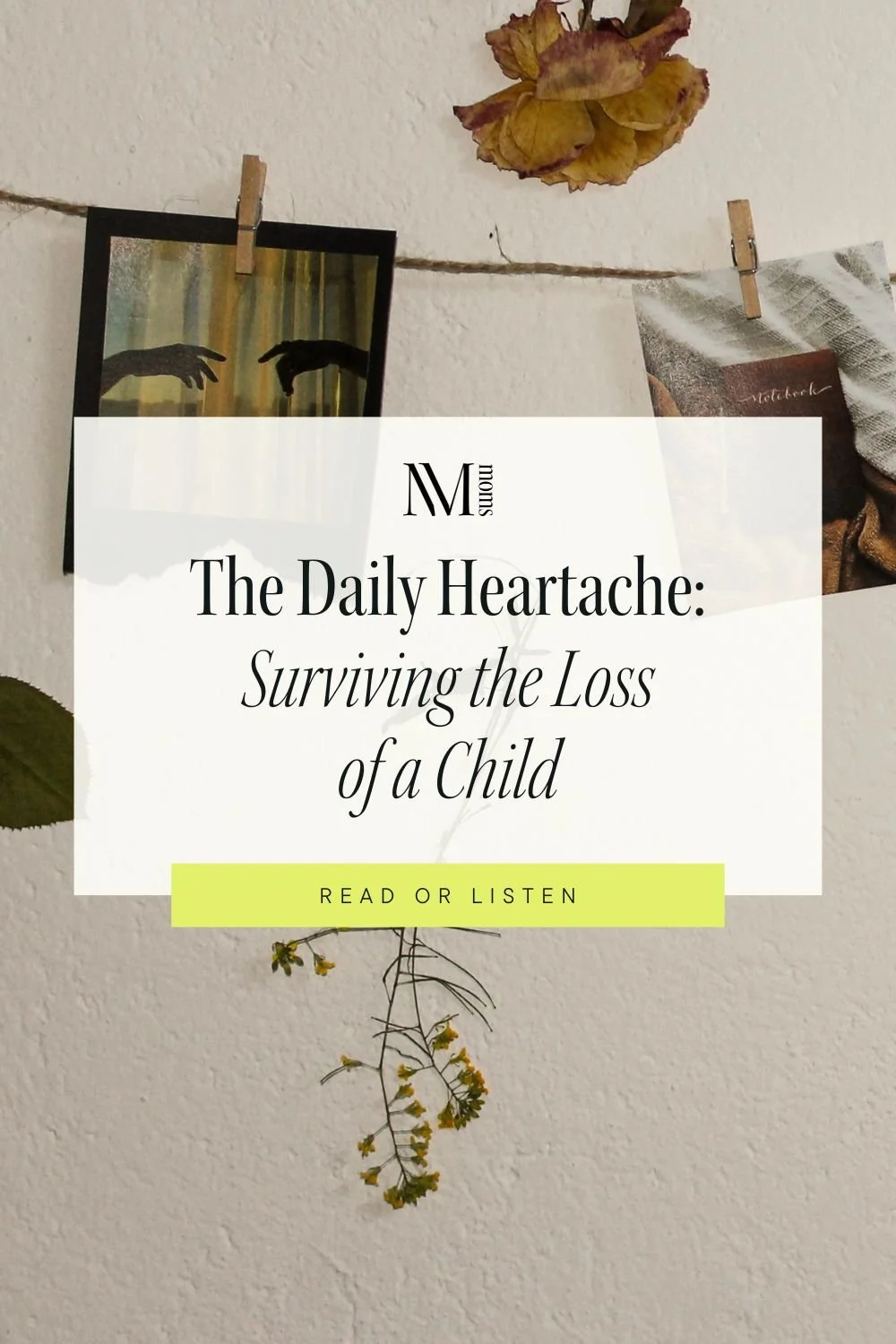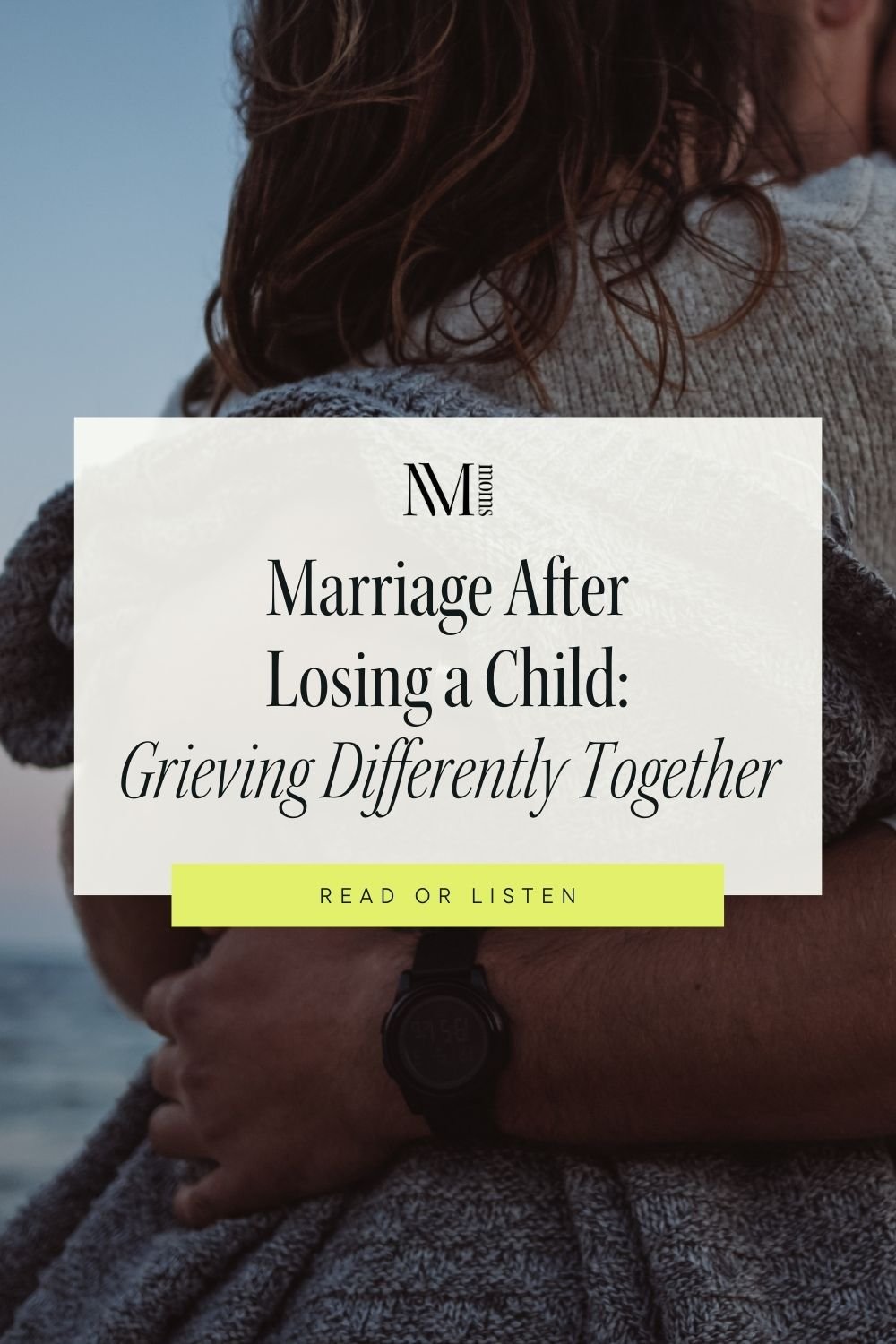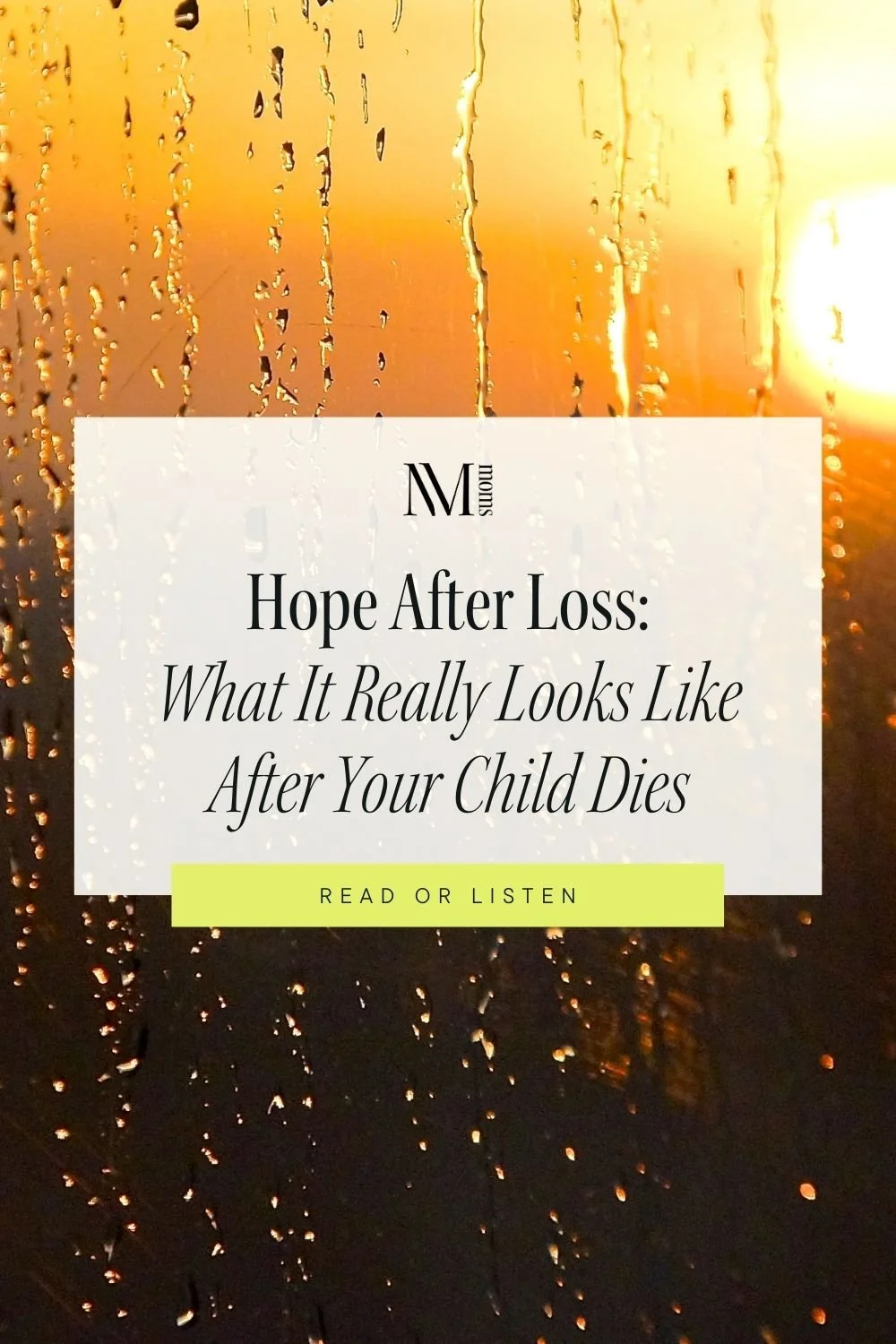Walking Together: Pregnancy and Infant Loss Awareness Month
Table of Contents Show
The Unspoken Grief: Finding Hope and Healing in Our Shared Stories
Pregnancy and infant loss – can anyone really describe the pain? Often words fall short, and we try to process our pain in the silent embrace of our thoughts. It's not that we wish to hide our grief; it's more that our grief is so profound that it's difficult to give it a voice.
But Pregnancy and Infant Loss Awareness Month offers us a chance—a chance to share, to remember, and to heal.
The History of Pregnancy and Infant Loss Awareness Month
Pregnancy and Infant Loss Awareness Month is observed in October and has a significant history associated with it. Here's a brief overview:
Origins in the U.S.: The month-long observation began in the United States. Before it became a month-long event, it started as a day of remembrance.
Ronald Reagan's Proclamation: The initial observation began on October 25, 1988, when then-President Ronald Reagan designated the entire month of October as "Pregnancy and Infant Loss Awareness Month." In his proclamation, he stated, "When a child loses his parent, they are called an orphan. When a spouse loses her or his partner, they are called a widow or widower. When parents lose their child, there isn't a word to describe them."
October 15th: Eventually, October 15th became specifically designated as Pregnancy and Infant Loss Remembrance Day. This day is now observed in the U.S. and in other countries around the world.
Activities and Observations: On this day, people often light candles at 7 p.m. local time, creating a "Wave of Light" across the world. The day seeks to raise awareness about the high frequency of pregnancy and infant loss, to provide support to grieving families, and to inform them of support services and resources.
Expansion Beyond the U.S.: Over the years, other countries have also recognized the importance of this observation and have started their own commemorations. Canada, Australia, and the UK, among others, have initiatives and events to mark the day or the month.
Public and Private Initiatives: Many organizations, hospitals, and support groups host events, memorial services, and awareness campaigns throughout October to educate and support families.
The core of Pregnancy and Infant Loss Awareness Month and Remembrance Day is to provide understanding, reduce stigma, and offer resources and support to those who have suffered a loss. By shedding light on this often silent sorrow, families can find community, understanding, and hope in their healing journey.
Sharing Your Story: A Path to Healing
Opening up about our experiences can be daunting. Some days, it feels easier to keep our pain tucked away, fearing judgment or pity. But in sharing, we find unity. Whether you wish to tell your full story or merely acknowledge your loss, every word spoken or written lessens the weight we carry.
Sometimes, we share to seek validation, and that's okay. What you've been through is hard. Really hard. Everyone wants to be heard and understood. Seeking validation isn't a sign of weakness. It’s human. Remember, it's natural and okay to want your feelings recognized and validated.
Talking about our losses isn't easy. There's a rawness and vulnerability to it. Sometimes, it feels safer to just lock those emotions away. We could fear judgment, misunderstanding, or pity. But, sharing has power. It’s like bringing the darkness to light. It's like lifting a weight off our shoulders, bit by bit.
Think about it: everyone has a story. Some are uplifting, some heartbreaking. Yours matters. Whether you delve deep into the memories or just touch the surface, speaking out can bring solace. To you and others.
Hesitation is natural. "Will they get it?" "Will I regret opening up?" But remember, every time you share, you create an opportunity. For understanding. For connection.
The act of sharing, be it a detailed narrative or a simple acknowledgment, creates ripples. Those ripples might touch a heart that's been silently yearning for connection, for a sign that they aren't alone in their pain. Your story could be the bridge for someone else's healing journey, a testament to the grace of God in our lives and the profound connections we form when we let our guards down.
Life's filled with ups and downs. By sharing our stories, we can find strength in each other and in what God is doing. It's a journey, but it's one we don't have to walk alone.
Understanding Grief Beyond Mothers: A Collective Pain
It's undeniable. Mothers feel an immense weight of grief. They carry it, day in, day out. But behind that visible sorrow, there are others hurting too, often in the shadows. Fathers wrestle with their own heartbreak, trying to be pillars of strength while their insides crumble. Their dual role of grieving and comforting is no small feat.
Then, there are the siblings. They might have drawn pictures, prepared gifts, or dreamt of the days playing with their new brother or sister. Their innocent anticipation turned into a lesson about life's fragility, often before they're ready.
And let's not overlook the grandparents. They not only mourn the loss of their grandchild but also witness their own child's anguish. They grapple with the pain of lost futures, missed milestones, and broken family traditions.
Grief, you see, is universal. It doesn't play favorites. It can sneak up on any one of us, regardless of age or role. While it manifests differently in everyone, its presence is felt deeply. In our journey through grief, it's essential to recognize and validate the pain of all family members, as each one needs understanding and support in their unique way.
Approaching the Silent Sufferers: Offering Support and Understanding
Reaching out to those silently grieving can be a delicate task, but it's essential. For mothers, the bond starts early, from the first flutter in their belly to the dreams and hopes they weave for their unborn child. Their grief is profound and often palpable. When checking in on a grieving mother, it's important to approach with utmost sensitivity. Instead of generic sentiments, offer her the chance to speak about her feelings without judgment. You could gently ask, "Would you like to share how you're feeling today?" or "Do you want to talk about your baby?" Understand that some days she might want to discuss her loss, while on others, she might seek solace in silence. Offering a listening ear, a shoulder to cry on, or simply your presence can be invaluable. Always be led by her cues, ensuring she feels supported and loved, no matter where she is in her journey of grief.
Now for fathers, acknowledging their unique pain is vital. Start by asking open-ended questions that allow them to share at their own pace, like "How are you holding up?" or "Is there anything you'd like to talk about?" They may need assurance that their grief is valid and that it's okay to show vulnerability.
With siblings, especially if they're younger, using simpler language can help. Encourage them to express their feelings through drawings or stories. Ask gentle questions such as, "How do you feel about your baby brother or sister?" or "Is there something you'd like to share about them?" This gives them a safe space to process and communicate their emotions.
As for grandparents, remember they're grieving twice over – both for their grandchild and for their own child's suffering. A simple, "How are you coping with everything?" can open the door for them to share. Listen attentively and reassure them that their feelings, though sometimes overlooked, are significant and real.
In all cases, the key is patience, active listening, and genuine empathy. Let them know you're there, not just to hear, but to truly understand.
The Grace of Sharing and Listening
Have you ever felt the urge to share your story, not for empathy but just to let it out? To voice the anguish? It's natural, and I’ve totally done this. Yet, as we open up, let's remember to do so with grace.
Imagine sitting across from a dear friend. You share your story with raw honesty, painting every moment with vivid emotion. Your friend listens, tears streaming down their face. Here, your grace lies in sharing without expectation — not for pity, not for them to say "my pain was worse," but simply for a mutual understanding.
But, sometimes, emotions can lead us astray. In a moment of deep vulnerability, one might blurt, "You were never there for me!" or "Why didn't you understand?" Though these feelings are valid, it's essential to steer away from blame and not let the anguish overshadow the message.
It might hurt when those we expected to be there for us weren't. But as we share our stories, we offer them a chance—a chance to stand with us, to be a part of our journey. In sharing our stories with grace, we also pave the way for them to be the support we need.
Listening with Empathy
When someone shares their story with you, it's okay to cry. It's okay to be overwhelmed. Remember, even Jesus wept when Mary and Martha lost their brother Lazarus.
However, as you sit and listen, you might grapple with an inner turmoil. Perhaps you'll recall a friend saying, "I just didn't know what to say" after hearing a heart-wrenching story. In that silence, though filled with good intentions, the grieving person might have felt isolated. Yet on the flip side, there's another friend who, despite feeling a loss for words, simply held a grieving mother's hand and let her tears speak volumes.
Words can sometimes elude us, but presence? That's irreplaceable. A simple squeeze of the hand, a gentle nod, or even shared silence can convey empathy more than a thousand words.
But let's be honest: the weight of someone's grief can sometimes be overwhelming. It might feel like trying to stand firm against a crashing wave. If you find yourself retreating because the emotional burden seems too much, that's okay. Self-preservation is vital. But remember, healing and resilience come in waves. If the weight feels too heavy to bear now, know that when the waters are shallower, you can always extend your hand to those still in the deep.
In moments of loss, sometimes all we need is a listening ear, a shoulder to cry on, and someone to remind us that Jesus is with us in our pain. And if you need words of comfort, I've shared some in a blog post, hoping to bring solace to families like ours who've experienced this profound loss.
Summary
Pregnancy and Infant Loss Awareness Month reminds us that the pain of such loss is deep and often silent. While this grief may seem insurmountable, the collective stories, remembrances, and shared experiences can be a beacon of hope. Throughout history, communities have come together to support and uplift each other during trying times.
By openly discussing our experiences, not only do we continue on our healing journey, but we also pave the way for others to find their voice in their grief. It's a reminder that while each person's grief journey is unique, no one has to walk it alone.
Soli Deo Gloria,
Kathy Clum
What do you think?
Please share in the comments below, I’d love to hear!
If you found this helpful, please share!
As a mom who’s suffered the loss of my baby, I know deep heart pain.
I tried to run from God, but he convinced me of his love and comforted my heart with hope and healing in Jesus.
Now, it’s my mission to share this same comfort with others who’ve experienced the pain of miscarriage and infant loss.


